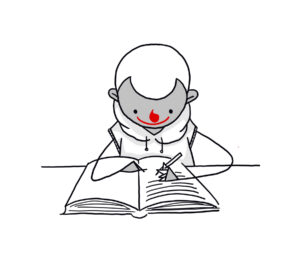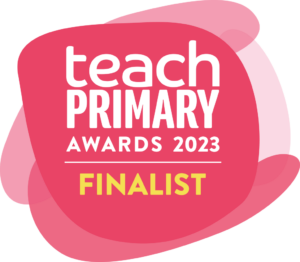 Religion, Values and Ethics (RVE) is part of the Humanities area of learning in the new Curriculum for Wales (2022). The subject guidance demands the inclusion of teaching about both religions and non-religious philosophical convictions.
Religion, Values and Ethics (RVE) is part of the Humanities area of learning in the new Curriculum for Wales (2022). The subject guidance demands the inclusion of teaching about both religions and non-religious philosophical convictions.
The 2021 census revealed that there are more non-religious people in Wales than Christians. 47% of people described themselves as having no relgion, making Wales one of the least religious countries in the world. It is essential that young people in Wales have the opportunity to learn about non-religious worldviews such as humanism.
Understanding Humanism: Curriculum for Wales Guidance: Our guidance sets out how teaching about humanism can support the aims and requirements of the new curriculum. It includes advice on What is a non-religious philosophical conviction?, How teaching about humanism fits into the new curriculum, and How the resources available on Understanding Humanism can support teaching and learning.
The new Curriculum makes reference to non-religious philosophical convictions. For more information about what is and what isn’t a non-religious philosophical conviction, see our helpful guide.
You will find many resources to help you teach about humanism in our resources area. For more about how to use our resources, check out our ‘How to use…’ guide.
For a more personal approach you can book a visit from one of our humanist school speakers in Wales who can answer your students’ questions. We also offer teacher training to support your subject knowledge and provide practical ideas for the classroom.
Below you will also find several of our resources translated into Welsh as well as resources on the history of humanism in Wales and prominent Welsh humanists (more information can be found on our Humanist Heritage website).
Our resources for Early Years include material about a young boy and his humanist parents who live in Wales.
You can find high-quality, inclusive assemblies on our Assemblies for All website, designed to provide free access to educational, enjoyable assemblies appropriate for young people from all backgrounds. Unlike many other websites, which offer assemblies frequently of a faith-based Christian nature, Assemblies for All prioritises assemblies that are not acts of collective worship and do not seek to promote one particular religion or belief.
Below you will find several of our resources translated into Welsh. These and many more resources are available in English in our resources area.
If you have any comments on our translated resources, then please get in touch at education@humanists.uk.

What is humanism? information sheet (5+)
Beth yw dyneiddiaeth? (5+) taflen wybodaeth
What is humanism? information sheet (7+)
Beth yw dyneiddiaeth? (7+) taflen wybodaeth
What is humanism? presentation (5+)
Beth yw dyneiddiaeth? (5+) cyflwyniad sleidiau
What is humanism? presentation (7+)
Beth yw dyneiddiaeth? (7+) cyflwyniad sleidiau
What is humanism? multiple-choice questions
Beth yw dyneifddiaeth? cwestiynau amlddewis
What is humanism? fill in the blanks activity (7+)
Beth yw dyneiddiaeth? (7+) gweithgaredd llenwi’r bylchau
The Happy Human
Mae’r Bod Dynol Hapus
Individual humanists answer the following questions:
What do humanists value? (7+)
Beth mae dyneiddwyr yn ei werthfawrogi? (7+)
What is a humanist understanding of human beings? (7+)
Beth yw dealltwriaeth ddyneiddiaeth o fodau dynol? (7+)
What is a humanist approach to understanding the world? (7+)
Beth yw agwedd dyneiddiaeth tuag at ddeall y byd? (7+)
What is a humanist approach to living a happy life? (7+)
Beth yw agwedd dyneiddiaeth tuag at fyw bywyd hapus? (7+)
What is a humanist approach to being good? (7+)
Beth yw agwedd dyneiddiaeth tuag at fod yn dda? (7+)
What are humanist goals for society? (7+)
Beth yw nodau dyneiddiaeth ar gyfer cymdeithas? (7+)
What is humanism? information sheet (11+)
Beth yw dyneiddiaeth? (11+) taflen wybodaeth
What is humanism? presentation (11+)
Beth yw dyneiddiaeth? (11+) cyflwyniad sleidiau
What is humanism? multiple-choice questions
Beth yw dyneiddiaeth? cwestiynau amlddewis
What is humanism? fill in the blanks activity (11+)
Beth yw dyneiddiaeth? (11+) gweithgaredd llenwi’r bylchau
The Happy Human
Mae’r Bod Dynol Hapus
Individual humanists answer the following questions:
What do humanists value? (11+)
Beth mae dyneiddwyr yn ei werthfawrogi? (11+)
What is a humanist understanding of human beings? (11+)
Beth yw dealltwriaeth ddyneiddiaeth o fodau dynol? (11+)
What is a humanist approach to understanding the world? (11+)
Beth yw agwedd dyneiddiaeth tuag at ddeall y byd? (11+)
What is a humanist approach to living a happy life? (11+)
Beth yw agwedd dyneiddiaeth tuag at fyw bywyd hapus? (11+)
What is a humanist approach to being good? (11+)
Beth yw agwedd dyneiddiaeth tuag at fod yn dda? (11+)
What are humanist goals for society? (11+)
Beth yw nodau dyneiddiaeth ar gyfer cymdeithas? (11+)
A history of humanism in Wales (11+) (English)
A history of humanism in Wales (11+) (Welsh)
Hanes dyneiddiaeth yng Nghymru (11+)
A history of humanism in Wales (14+) (English)
A history of humanism in Wales (14+) (Welsh)
Hanes dyneiddiaeth yng Nghymru (14+)
Humanists from Wales (14+) (English)
Humanists from Wales (14+) (Welsh)
Dneiddwyr o Gymru (14+)
If you use our resources, let us know what you think about them. Send us your feedback and be in with a chance of receiving a free bundle of books about humanism.
Humanists UK
39 Moreland Street
London EC1V 8BB
education@humanists.uk
@HumanismEdu

© Humanists UK 2024. Registered Charity No. 285987
humanists.uk | Privacy
Illustrations by Hyebin Lee